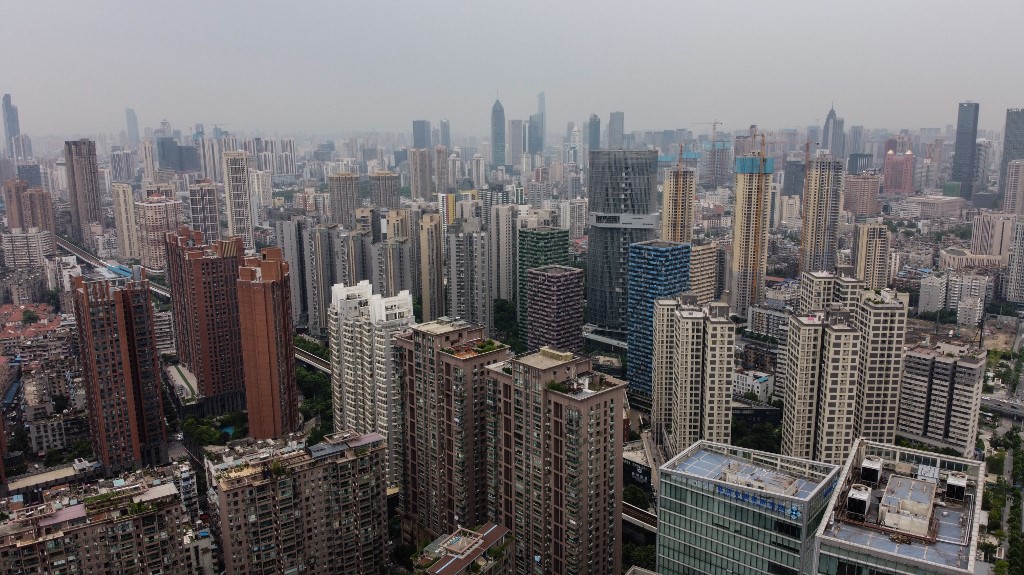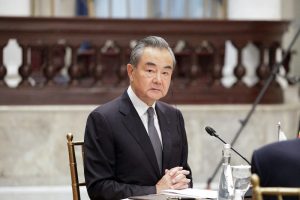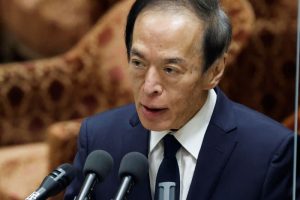(ATF) The Shanghai Clearing House revealed late on Monday July 6 that Taihe Group – a major conglomerate involved in healthcare, real estate and others sectors – had defaulted on its first bond, China Cable news reported.
Taihe Group (Taihe MTN001) is reported to have 8.9 billion yuan ($1.27 billion) in bonds outstanding. According to the Taihe Group’s 2019 annual report, as of June 12, a total of 24.198 billion yuan (about $3.45 billion) of principal and interest was overdue on loans.
Taihe Group issued a public offering medium-term note – 17 Tahoe MTN001 – on July 5, 2017. The amount was 1.5 billion yuan, with an annual interest rate of 7.5%, and the term was three years. The main underwriters were China International Finance and China Merchants Bank. The rating agency was United Credit Rating Co Ltd.
According to the issuance statement, 482 million yuan of the 1.5 billion yuan in funds was used for the East District of Fuzhou East Second Ring Taihe Plaza project, while the remaining funds were used to repay loans.
Real estate groups on shaky ground
Whether Taihe Group can manage this debt crisis is not known yet, but some observers say this could be the first of many in China’s real estate sector facing bother given severe economic impacts from the coronavirus epidemic.
The scale of domestic and overseas bonds used to finance the country’s domestic housing companies is about 558.8 billion yuan, an increase of 58% over the previous year. Real estate firms companies will face great pressure to repay their debts in the second half of this year.
Real estate companies have reached a peak in bond financing, according to Hexun Real Estate News. Besides money needed to be paid this year, the maturity pressure of bonds in 2021 and the second half of 2022 exceeds 500 billion yuan (US$71.3 billion) and 3,000 billion yuan (about $428 billion) respectively. The demand for debt replacement and debt refinancing will continue to increase over the next two to three years.
In the first half of this year, domestic and foreign financing of housing companies totalled about 650.6 billion yuan, accounting for 53% of the total financing in 2019. The scale of domestic financing increased by 12 percentage points to 62% from the same period in 2019, while the scale of overseas financing accounted for 38%.
Bonds used to service debts
Pan Hao, a senior analyst at the Shell Research Institute, said that according to the requirements of the regulatory authorities, current bond issuance cannot be used for land purchases, so 90% is “borrowed from the old to the old,” meaning that firms are swapping debts, or refinancing bonds to service debt. This year’s financing interest rate is relatively low, so it is more common for housing companies to replace debt and reduce financial costs.
The news shows that Wanda, Evergrande, Greenland, Greentown and Huafa have the most debts due in the second half of the year.
In order to alleviate the pressure of debt servicing, many housing companies are busy issuing bonds and borrowing new ones to repay old ones.
Although the financing costs of real estate companies declined in the first half of this year, the gap between state-owned and private enterprises is still relatively large.
The three state-owned enterprises with the lowest financing cost are China Resources, China Merchants and Jinmao, with financing rates of 2.81%, 2.81%, and 2.91% respectively.
The three private enterprises with the highest financing costs are Jiazhaoye, Blu-ray and Zhongnan, with financing rates of 7.25% and 7.18% and 7.10%, respectively. So, the funding costs of state enterprises are about 5 percentage points lower than those.
Low impact on property market – really?
Despite the impact of the coronavirus in the first half of the year, the overall common impression is that it had a low impact on the national property market. On July 3, the China Index Research Institute released June house price data, which showed that 77 of some 100 cities had a month-on-month rise in house prices, and that the month-on-month increase had expanded.
In the first half of the year, there was a V-shaped reversal in housing prices across the country. Prices have now risen for four consecutive months and the quarter-on-quarter growth rates are expanding, which shows that house prices are still in a period of accelerated growth. And it is expected that house prices will continue to rise in the second half of this year. Next year the country may see a period of constant growth. This suggests that housing prices over the past 18 months has been worry-free, and that the overall trend is still upward.
But not everyone agrees. China Real Estate news interviewed normal property owners and one said: “People who dare to say that house prices have risen must have eaten leopard gall.”
Indeed, many claimed that figures on housing prices risen were “fake news”. The men and women on the street are not convinced.
Meanwhile, the real estate giants face a series of debt mountains.
Taihe Group is the first default. Who will be next?






















